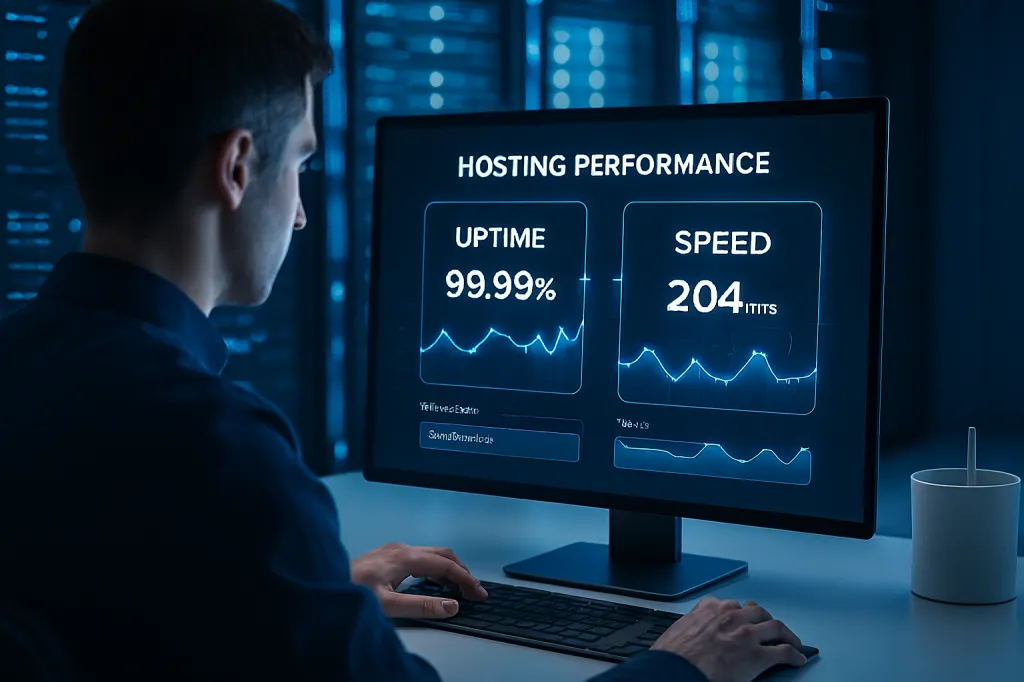Introduction
When building a website, choosing the right web hosting plan is one of the most crucial — yet often overlooked — decisions.
Your hosting environment directly impacts your site’s speed, security, uptime, and overall user experience, which in turn affect your SEO performance and Google AdSense approval potential.
This guide explores the technical and strategic factors behind selecting a hosting plan that fits your goals — whether you’re launching a personal blog, a growing eCommerce store, or a large-scale digital platform.
1. Understanding Web Hosting: The Backbone of Your Website
Web hosting is the service that keeps your website online by storing its files, databases, and scripts on a remote server.
When visitors type your domain name, the hosting server sends the necessary data to display your site.
The Three Core Elements of Hosting
-
Storage – Where your website files and media are kept
-
Bandwidth – How much data your site can transfer to visitors
-
Uptime – The percentage of time your website stays online
A good hosting provider ensures 99.9% uptime, low latency, and fast content delivery across global regions.
2. Types of Web Hosting Explained
Choosing a hosting type that matches your needs prevents performance issues and unnecessary costs.
a. Shared Hosting
-
Multiple websites share a single server.
-
Cost-effective and beginner-friendly.
-
Ideal for small blogs or portfolio sites.
-
⚠️ Limited resources and may slow down with high traffic.
b. Virtual Private Server (VPS)
-
Divides a physical server into virtual segments.
-
Offers dedicated resources and better stability.
-
Suitable for medium-sized businesses or agencies.
c. Dedicated Hosting
-
One server dedicated entirely to your website.
-
Maximum performance and security.
-
High cost — best for large enterprises or heavy-traffic eCommerce sites.
d. Cloud Hosting
-
Scalable hosting distributed across multiple virtual servers.
-
Excellent uptime, flexibility, and redundancy.
-
Ideal for fast-growing websites needing global reach.
3. Evaluating Hosting Providers: What Really Matters
Not all hosting providers are equal.
Here are five key factors you should always consider:
1. Server Performance
Fast loading speed improves user engagement and SEO rankings.
Choose a host offering NVMe SSD storage and LiteSpeed servers for superior performance.
2. Security Features
Essential protections include:
-
Free SSL certificate (HTTPS)
-
DDoS protection
-
Automatic backups
-
Malware scanning and firewall systems
3. Customer Support
24/7 technical support via live chat or ticketing ensures quick issue resolution.
Reliable support can save your site during critical downtimes.
4. Scalability
Your hosting should grow with you — enabling easy upgrades to VPS or Cloud as traffic increases.
5. Pricing Transparency
Avoid hosts that offer unrealistically cheap first-year plans but expensive renewals.
Check hidden costs for domain renewal, backups, or email hosting.
4. Hosting and SEO: The Hidden Connection
Many beginners underestimate how hosting affects search engine ranking.
However, Google’s Core Web Vitals — metrics like Largest Contentful Paint (LCP) and First Input Delay (FID) — directly relate to hosting quality.
Hosting Impacts SEO in Several Ways:
-
Server Location: Choose a server near your target audience.
-
Speed and Caching: Faster load times increase user retention.
-
SSL Security: HTTPS is a ranking signal for Google.
-
Downtime: Frequent downtime can lead to ranking loss.
A top-tier hosting provider gives you an immediate SEO edge before publishing a single article.
5. Preparing for Google AdSense Approval
When applying for Google AdSense, your hosting setup must meet professional standards.
Checklist:
✅ Domain connected with HTTPS
✅ Fast and stable hosting (loading time < 2.5s)
✅ No downtime or “server not found” errors
✅ Proper DNS configuration (no redirects or broken links)
✅ Clean site structure and easy navigation
Google’s AdSense review team checks technical reliability as part of the evaluation — a slow or insecure server can lead to rejection even with good content.
6. Recommended Hosting Providers for 2025
Based on performance benchmarks, community reputation, and AdSense readiness, the following providers consistently deliver reliable results:
| Hosting Provider | Type | Strengths |
|---|---|---|
| Hostinger | Shared / Cloud | Excellent value, fast LiteSpeed servers |
| SiteGround | Shared / Cloud | Great support, high security, auto-SSL |
| A2 Hosting | Shared / VPS | Turbo speed option, SSD-powered |
| Cloudways | Cloud | Developer-friendly, scalable for business |
| Namecheap | Shared | Affordable domains + hosting combo |
Always verify your server’s uptime and SSL installation before launching live.
7. Pro Tips for Long-Term Hosting Success
-
🧩 Monitor site speed using Google PageSpeed Insights or GTmetrix.
-
🔐 Enable automatic backups weekly or daily.
-
🚀 Use a CDN (Content Delivery Network) like Cloudflare for global acceleration.
-
🧠 Keep your CMS updated (e.g., WordPress core, plugins, and themes).
-
💡 Renew your hosting early to avoid suspension or data loss.
A consistent, stable hosting environment boosts visitor trust — and that’s exactly what advertisers and Google reward.
Conclusion
Your hosting plan is more than just storage space — it’s the infrastructure that defines your website’s quality and performance.
By investing in the right hosting provider and configuration, you’ll build a secure, fast, and scalable foundation that improves SEO, user experience, and AdSense eligibility.
A strong hosting setup isn’t a cost — it’s an investment in your website’s future success.





